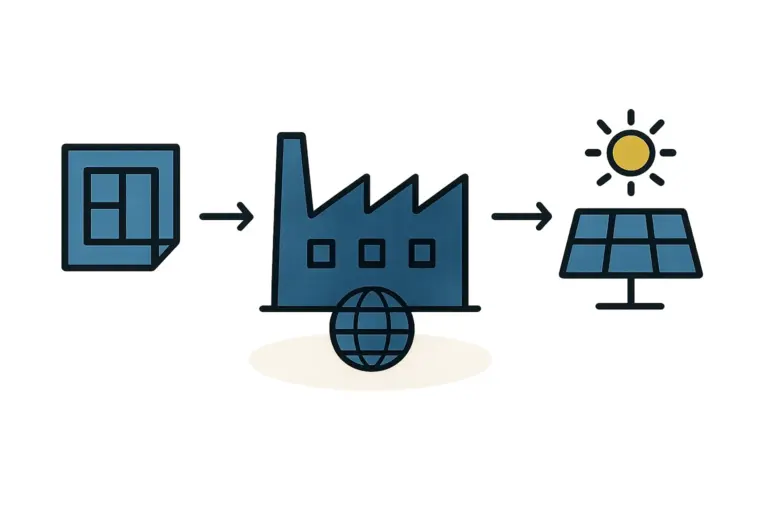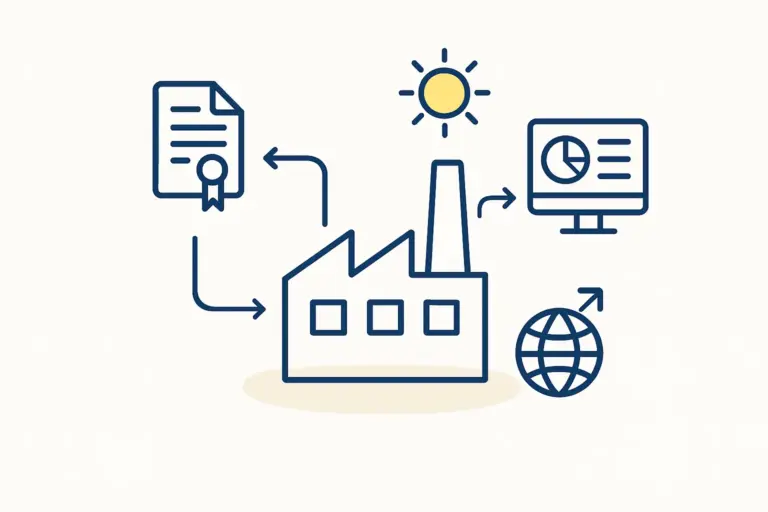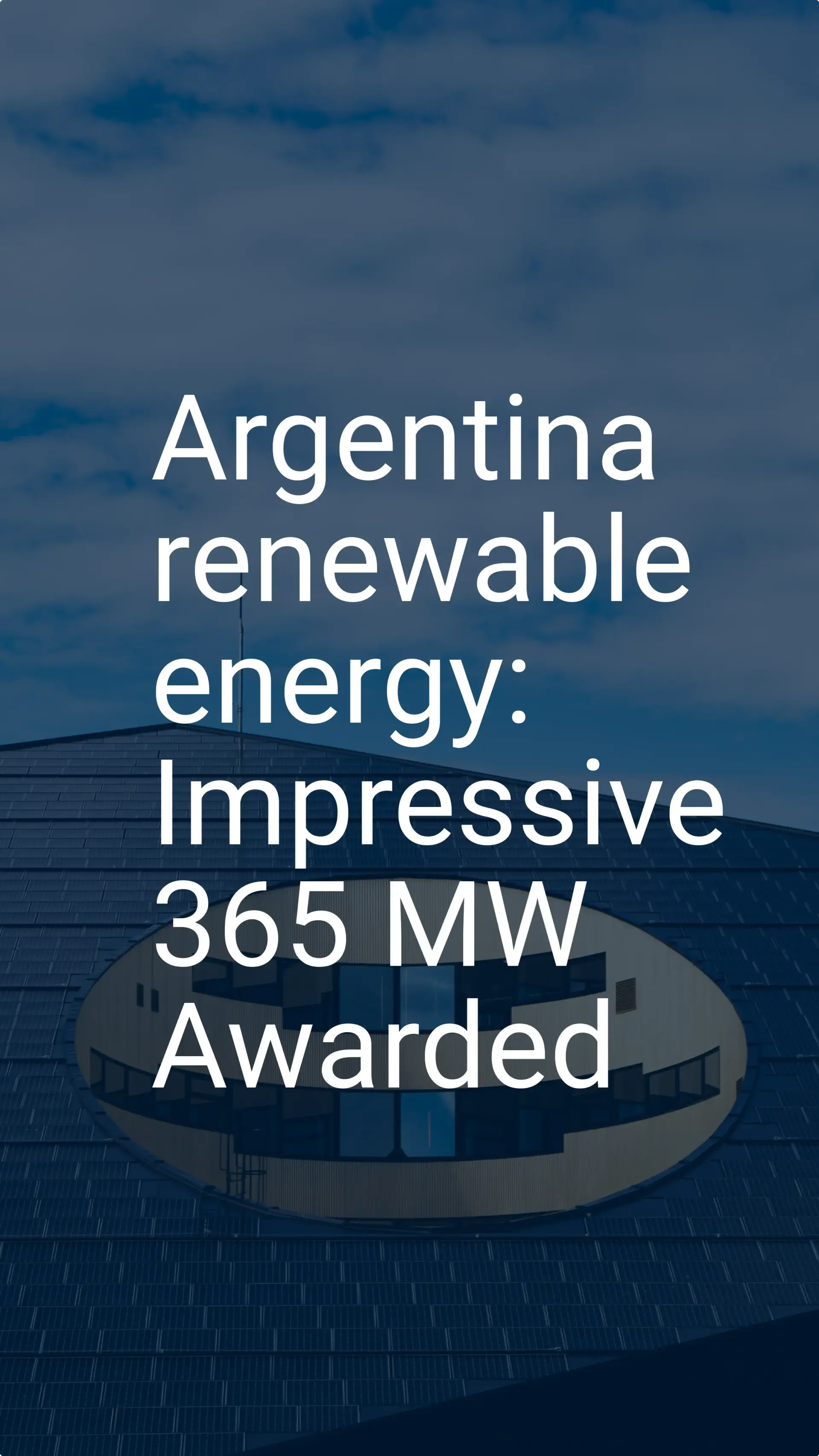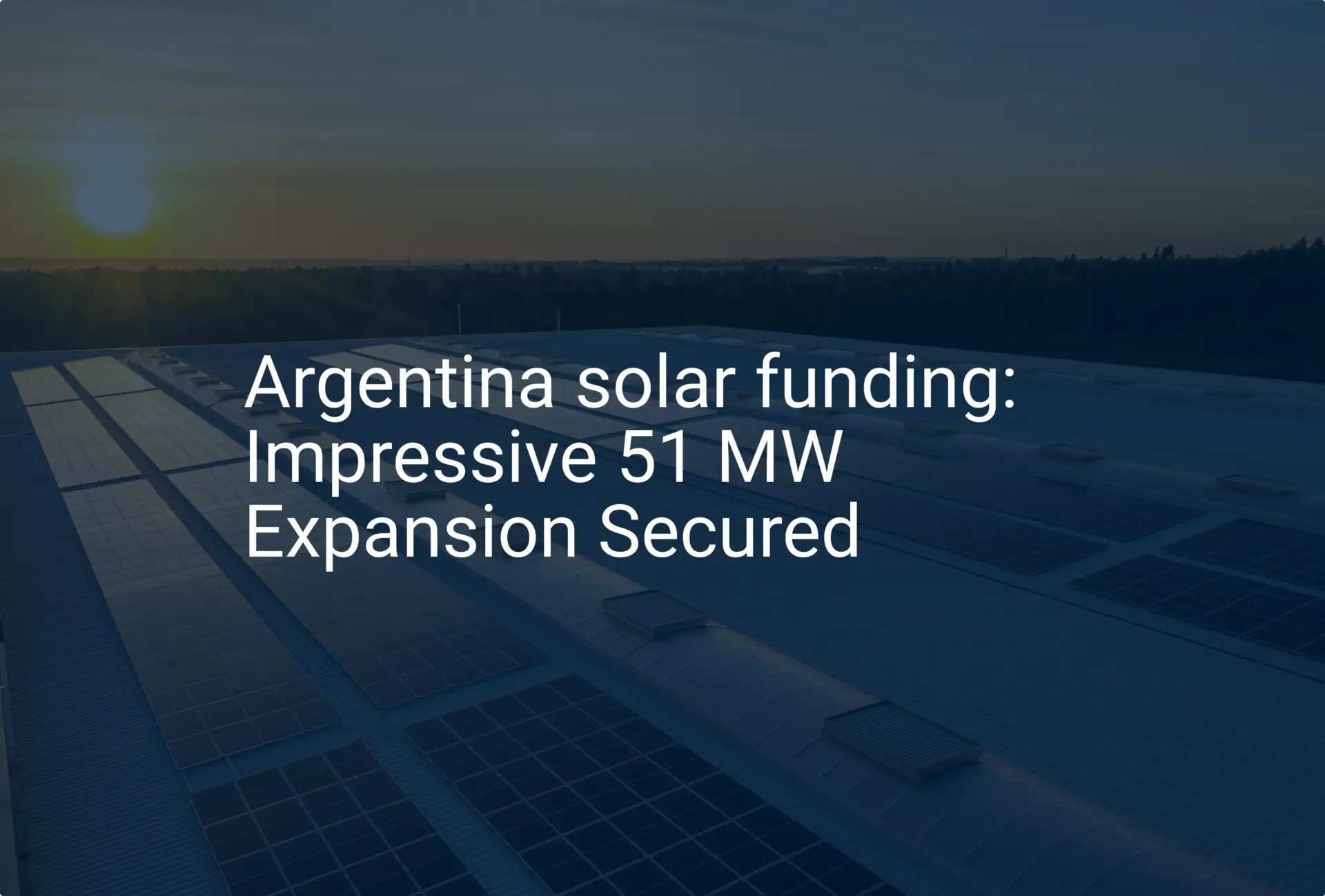Assessing Argentina’s Labor Market: Is There a Skilled Workforce Ready for Solar Module Factories?
Argentina is turning its gaze toward the sun, with big ambitions to expand its solar energy capacity and, crucially, establish a domestic solar module manufacturing industry. It’s a strategic move that aligns perfectly with global trends in renewable energy and the broader push for energy independence. However, the success of these ventures hinges not just on technology and investment but on something far more fundamental: human capital.
For any entrepreneur or company following Argentina labor news and eyeing the country for solar module production, a critical question surfaces: Does the country have the skilled technical labor and engineering talent required to build and operate modern solar panel factories?
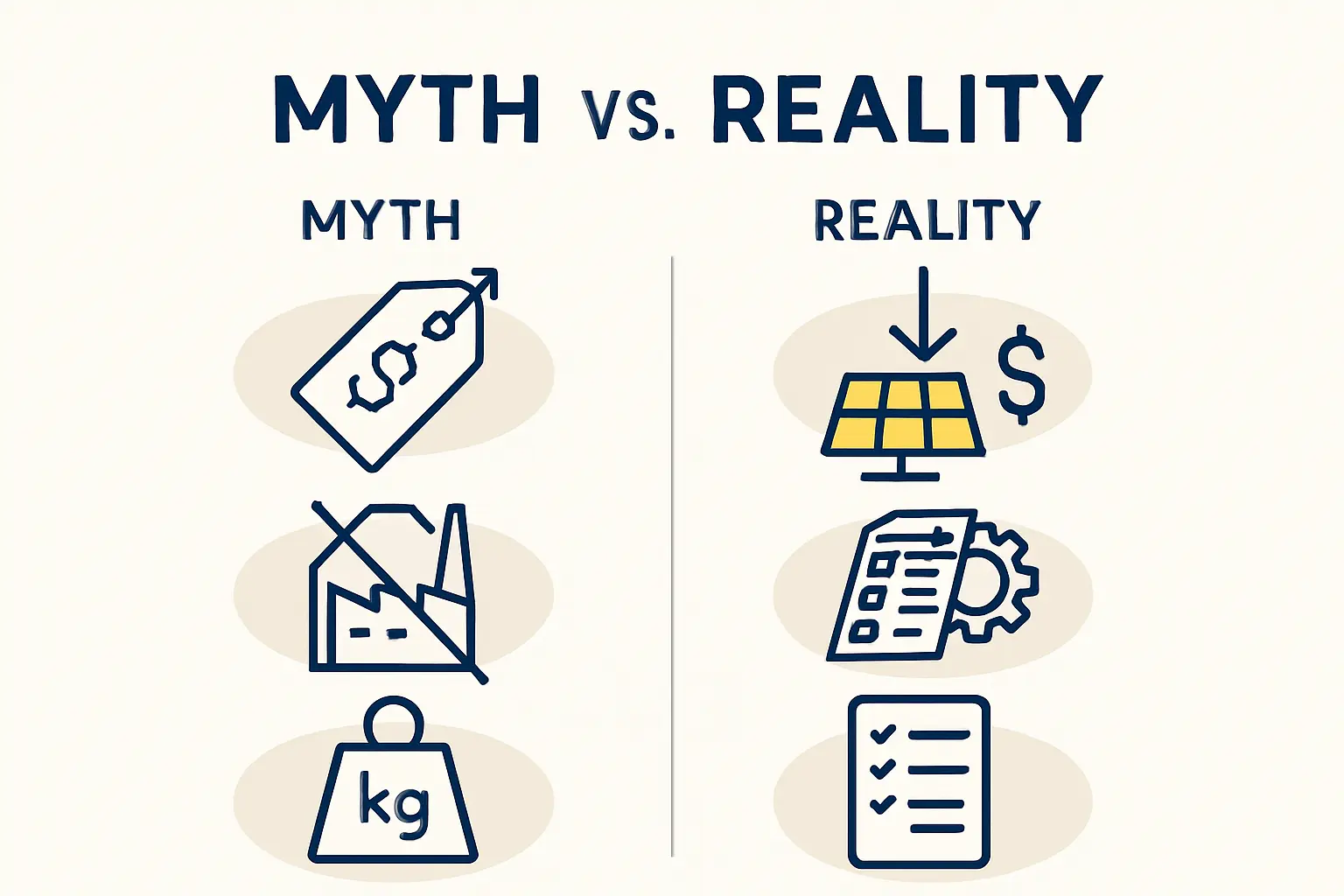
Let’s take a closer look at Argentina’s labor market—evaluating the availability of skilled workers, the strength of its engineering talent, the reality of labor costs, and the landscape of relevant training programs. A clear picture of these factors is essential for effective operational planning and for realizing the incredible potential of solar manufacturing in Argentina.
Table of Contents
Imagine your solar future, clearly defined.
Begin with our free e-course to grasp the essentials, or accelerate your progress with our specialized services. For the visionary entrepreneur, our Premium Business Plan E-Course delivers the advanced strategies to launch a truly impactful solar venture. Power your world, and your profits, effortlessly.
The Current State of Skilled Technical Labor in Argentina
The good news is that Argentina isn’t starting from scratch. The country has a long and proud industrial tradition, especially in sectors like automotive, food and beverage, and metalworking. This history provides a solid foundation of skilled technical labor already familiar with manufacturing processes and industrial environments latamfdi.com.
General Manufacturing Experience:
Argentina has an existing pool of technicians with experience in machinery maintenance, quality control, and production line supervision. This foundational experience is a valuable asset—a starting point for transitioning or upskilling talent for the specialized needs of solar module manufacturing.
Availability of Technicians for Modern Factories:
Modern solar module factories are highly automated—just look at the one nearing completion in San Juan province, which is expected to employ around 110 highly skilled workers dialogue.earth. This means the demand is less for manual assembly line workers and more for technicians skilled in high-tech disciplines:
- PLC (Programmable Logic Controller) Programming: Essential for managing automated machinery.
- Robotics: Operating, maintaining, and programming the robotic arms used in module assembly.
- Mechatronics: A multidisciplinary field that blends mechanical, electrical, computer, and systems engineering—the backbone of sophisticated automated systems.
- Automated System Maintenance: Ensuring the uptime and efficiency of these complex production lines.
While a general pool of technicians exists, the specific, high-tech skills required for automated solar manufacturing highlight an area where targeted training is becoming essential.
Challenges and Skill Gaps:
The primary challenge, then, is bridging the gap between existing industrial skills and the unique requirements of advanced solar module production. While many technicians have a strong manufacturing background, they may have limited direct experience with semiconductor-grade cleanroom environments, the specific machinery for handling solar cells, or the advanced lamination and testing equipment for PV modules. This reality underscores just how important specialized upskilling programs will be.
Assessing Engineering Talent for Solar Factories
Argentina has a robust higher education system, producing a steady stream of engineering graduates from universities and technical institutes nationwide.
University Output:
Argentinian universities consistently graduate engineers in key fields, including:
- Electrical Engineering
- Mechanical Engineering
- Industrial Engineering
- Chemical Engineering
- Materials Engineering
These disciplines provide the core engineering workforce needed for everything from plant design and process optimization to quality assurance and R&D. A quick search on job boards like LinkedIn and Glassdoor shows active listings for engineering roles in Argentina, indicating a dynamic market for these professionals linkedin.com, glassdoor.com.
Specialized Expertise:
While general engineering talent is available, specific experience in photovoltaic (PV) technology, semiconductor manufacturing, or advanced materials science is naturally less common. Engineers often gain this specialized knowledge the old-fashioned way: through on-the-job training, postgraduate studies, or work with international companies. As the local solar manufacturing ecosystem grows, it will organically foster a larger pool of this specialized talent.
Demand vs. Supply:
The growing renewable energy sector, including both wind and solar project development, has already increased demand for engineers with relevant skills. As domestic solar manufacturing begins to scale up, we can expect competition for experienced engineers to intensify, making continuous education and talent development pipelines even more critical for success.
Understanding Prevailing Labor Costs in Argentina’s Manufacturing Sector
Labor costs are a major factor in any manufacturing investment, and in Argentina, this aspect is complicated by high inflation and currency volatility. It’s a reality that requires careful navigation.
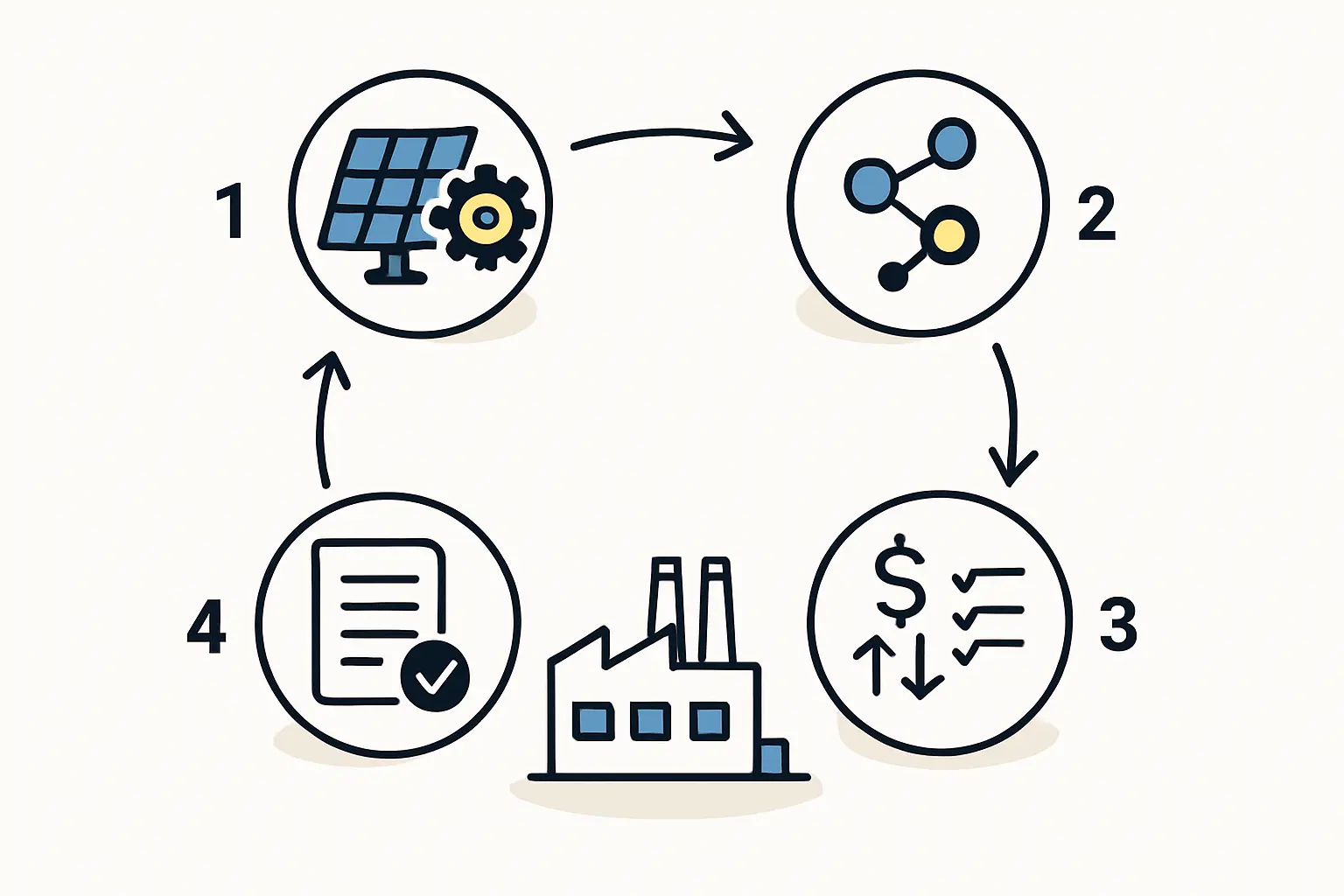
Salary Benchmarks:
Providing exact, stable salary benchmarks in USD is challenging due to Argentina’s economic climate. In general, skilled technicians and engineers in Argentina earn salaries that are competitive within Latin America but can be higher in nominal terms than in major Asian manufacturing hubs like China. The International Energy Agency (IEA) has noted that manufacturing costs in China are substantially lower than in other regions, which is due to a combination of factors including energy, labor, and investment costs iea.org.
It’s also important to remember that in highly automated factories, direct labor costs represent a smaller portion of total production costs compared to materials, energy, and capital equipment.
This is why local assembly in Argentina is projected to make final module prices 10-15% cheaper than imported Chinese panels. The savings are driven primarily by reduced logistics costs, import duties, and taxes—not necessarily by drastically lower labor costs [dialogue.earth].
Impact of Economic Volatility:
- Inflation: Argentina has faced long periods of high inflation, which erodes the real value of wages and requires frequent salary adjustments. This can create significant uncertainty for business planning.
- Currency Fluctuations (“Dolar Blue”): The unofficial “dolar blue” exchange rate exists alongside the official rate, affecting any business that needs to source foreign currency for imported components or repatriate profits. It also impacts the real cost of labor when benchmarked against the US dollar.
Non-Monetary Costs:
In addition to salaries, employers in Argentina must account for social security contributions, payroll taxes, and labor laws governing working hours, benefits, and severance packages. These can add a significant percentage to the base salary cost. For instance, businesses face a:
- 21% VAT
- 4% Gross income tax
- 30% Profit tax
…among other municipal taxes, all of which influence the overall cost environment mdpi.com.
Training Programs and Workforce Development Initiatives
Recognizing the need for a skilled workforce, Argentina has various educational and training initiatives in place, though programs specific to solar module manufacturing are still in their early stages.
Existing Technical and Vocational Education:
- National Institute of Technological Education (INET): This key institute oversees a network of technical schools across the country, providing vocational training in various industrial trades. Curricula are gradually being updated to meet the demands of modern industries, including renewables.
- Regional Technical Schools: Provinces often have their own technical training centers that cater to local industrial needs, which can be a valuable resource.
University-Level Programs:
Many universities offer undergraduate and postgraduate programs in engineering, renewable energy, and environmental sciences. These institutions are critical for developing the high-level engineering and research talent the industry needs.
Specialized Solar Training:
- Emerging Local Programs: As the solar industry grows, more specialized training programs focused on PV system design, installation, and manufacturing will likely emerge.
- International Providers: Organizations like Solar Energy International (SEI) and Amatrol offer internationally recognized training in solar technology and industrial automation. They could play a vital role in upskilling the Argentine workforce, either directly or through partnerships with local institutions solarenergy.org, amatrol.com.
- Industry-Government Collaboration: Ultimately, successful workforce development will require collaboration between solar manufacturing companies, educational institutions, and government agencies to design and fund targeted training. The new San Juan factory, for example, will undoubtedly need specialized training for its highly skilled operational and maintenance staff.
Government Incentives and Support for Labor in the Solar Sector
The Argentine government has implemented policies to promote renewable energy and local manufacturing that can directly or indirectly support workforce development.
- Tax Benefits and Subsidies: Incentives may be available for companies investing in renewable energy projects and local manufacturing, potentially including benefits tied to job creation or training programs.
- Support for R&D: Funding for research and development in renewable technologies can help build local expertise and attract skilled professionals to the field.
- Regional Development Policies: Provinces like San Juan, which are actively promoting themselves as solar hubs, often offer additional local incentives to attract investment and develop the necessary infrastructure—including a skilled labor force.
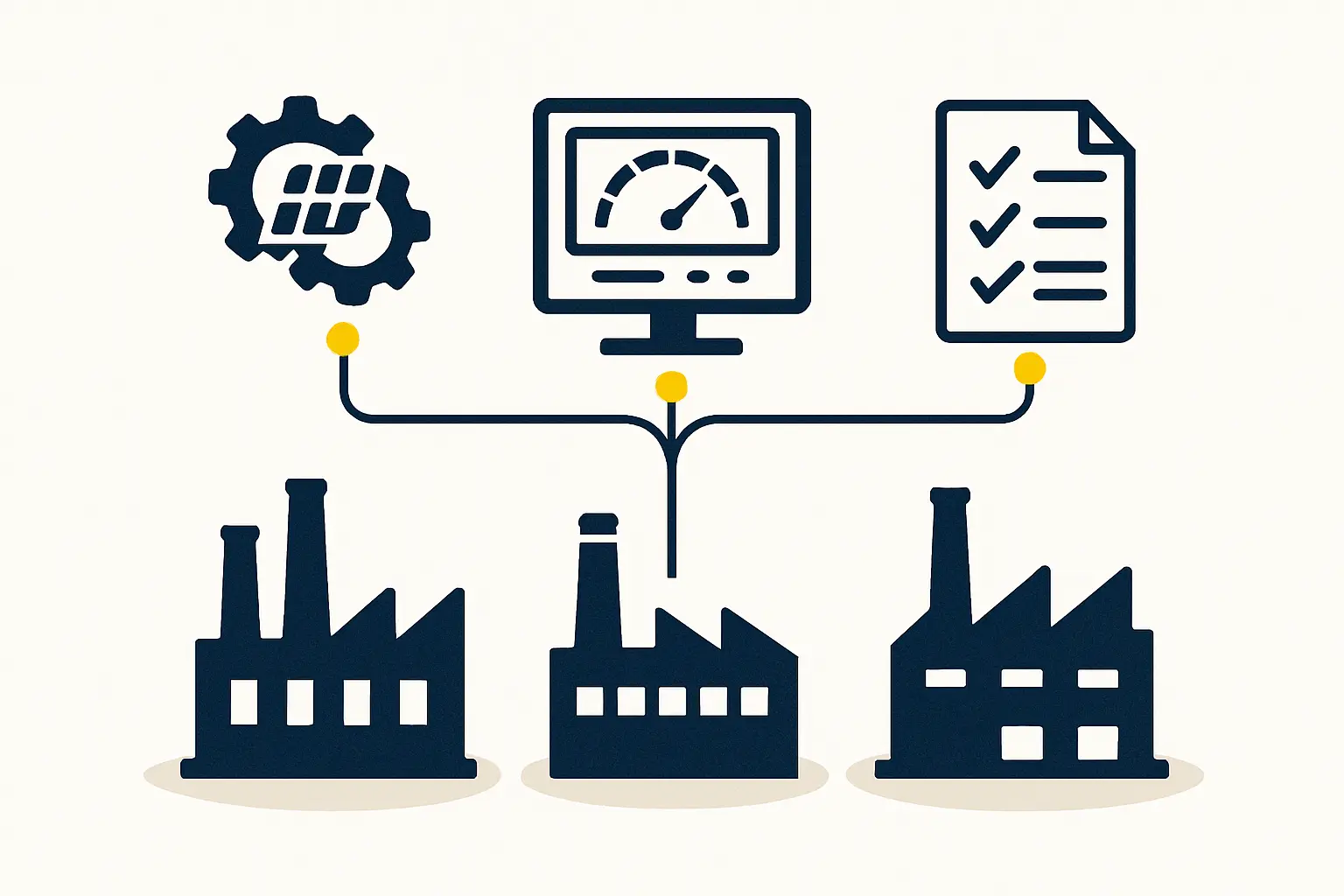
Bridging Skill Gaps for Automated Factories
With a future defined by new, highly automated facilities, solar module manufacturing in Argentina demands a workforce proficient in cutting-edge technologies.
- Focus on High-Tech Skills: The most critical skills to cultivate are in robotics, industrial data analysis, PLC programming, and advanced quality control techniques specific to PV modules.
- Continuous Training and Adaptation: The solar industry is incredibly dynamic, with technologies evolving at a rapid pace. A culture of continuous learning and regular upskilling will be essential for the workforce to remain competitive.
- Attracting and Retaining Talent: Beyond training, creating an attractive work environment, offering competitive compensation that accounts for the country’s economic realities, and providing clear opportunities for career growth will be crucial to attracting and retaining the specialized talent needed to succeed.
Conclusion: Building a Competitive Workforce for Argentina’s Solar Future
Argentina has a solid foundation of human capital on which to build a thriving solar module manufacturing industry. Its established industrial base, a steady output of engineering graduates, and a growing focus on renewable energy are all significant advantages.
However, realizing this potential requires a concerted effort. Navigating the country’s economic volatility remains a key business challenge. For the solar sector specifically, success hinges on targeted investment in specialized training to equip technicians and engineers with the high-tech skills demanded by modern, automated factories.
Ultimately, this success will depend on collaboration between industry, educational institutions, and government to develop these programs and foster an environment where skilled labor can truly flourish.
While challenges certainly remain, Argentina’s commitment to expanding its solar capabilities, coupled with proactive workforce development, can pave the way for a competitive domestic solar manufacturing sector that contributes to energy independence, job creation, and sustainable economic growth.
Frequently Asked Questions (FAQs)
What are the key technical skills needed for a solar panel factory in Argentina?
For modern, automated solar panel factories, the most important skills include PLC programming, robotics operation and maintenance, mechatronics, automated system troubleshooting, quality control specific to PV modules, and industrial data analysis.
How does Argentina’s economic situation (inflation, “dolar blue”) affect labor costs for manufacturing?
High inflation can lead to frequent wage adjustments and create uncertainty in budgeting. The “dolar blue,” or parallel exchange rate, affects the real cost of labor when benchmarked against foreign currencies and impacts the overall cost of doing business, especially if components are imported. Businesses require robust financial planning to navigate this volatility.
Are there enough engineers in Argentina for the growing solar industry?
Argentina produces a good number of graduates in core engineering disciplines like electrical, mechanical, and industrial. While this general engineering talent is available, specialized experience in PV technology or advanced solar manufacturing may require further development or on-the-job training as the industry scales up.
What kind of training support is available for the solar manufacturing workforce in Argentina?
Existing technical schools and universities provide foundational engineering and technical skills. Specific training for solar module manufacturing is still an emerging area, with great potential for development through public-private partnerships, industry-led initiatives, and collaboration with international training providers. The focus will need to be on upskilling for automated systems and PV-specific processes.
Can local assembly of solar panels in Argentina be cost-competitive?
Yes, it appears that local assembly can offer cost advantages. Projections suggest that locally assembled modules could be 10-15% cheaper than fully imported panels. This is primarily due to savings on logistics, import tariffs, and local taxes, rather than solely on labor costs—especially in highly automated facilities dialogue.earth.
Sources
Cited Sources
- dialogue.earth/en/energy/argentinas-first-solar-panel-factory-nears-opening/
- latamfdi.com/manufacturing-in-argentina/
- pvknowhow.com/solar-report/argentina/
- glassdoor.com/Job/argentina-energy-systems-engineer-jobs-SRCH_IL.0,9_IN15_KO10,33.htm
- linkedin.com/jobs/engineer-jobs-argentina
- iea.org/reports/solar-pv-global-supply-chains/executive-summary
- mdpi.com/2673-9941/2/2/8
- solarenergy.org (Representing international training providers like SEI)
- amatrol.com (Representing international training providers for industrial automation)


